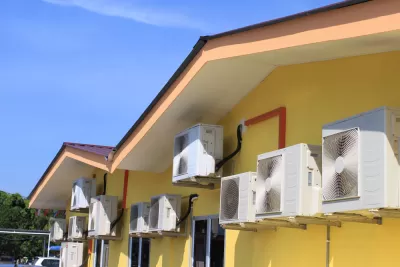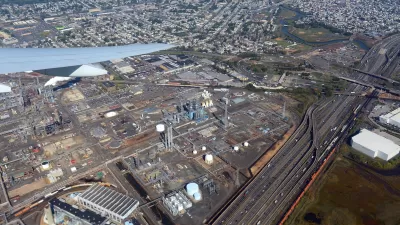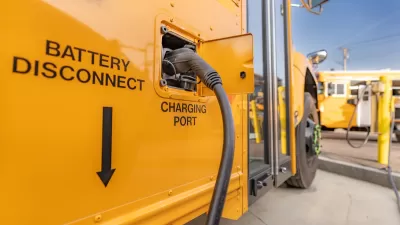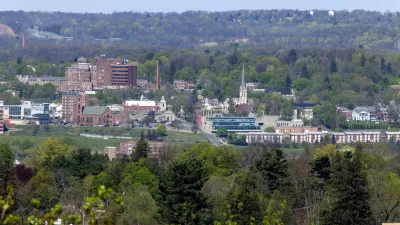The Guardian sounds the alarm about deadly heat exposure in poor communities around the world.

Cities around the world are increasingly reaching "killer temperatures," exposing record numbers of people to deadly heat for weeks at a time—and as urbanization increases, these risks will grow. But within cities, a feature in The Guardian shows, the impacts of intense heat and pollution clearly follow economic and racial lines.
In the US, immigrant workers are three times more likely to die from heat exposure than American citizens. In India, where 24 cities are expected to reach average summertime highs of at least 35C (95F) by 2050, it is the slum dwellers who are most vulnerable.
In general, the authors write, the people most likely to suffer illness or death due to extreme heat include those experiencing homelessness, prisoners, and "low-income populations living near traffic in poor housing with no air conditioning." People who live in areas with trees and green landscaping bear less risk than people in areas dominated by asphalt, brick, and concrete—and research has repeatedly shown that these conditions are largely determined by race and wealth. In the U.S., for example, Berkeley researchers found that "Black people were 52% more likely than white people to live in areas of unnatural 'heat risk-related land cover', while Asians were 32% more likely and Hispanics 21%."
FULL STORY: Heat: the next big inequality issue

Study: Maui’s Plan to Convert Vacation Rentals to Long-Term Housing Could Cause Nearly $1 Billion Economic Loss
The plan would reduce visitor accommodation by 25,% resulting in 1,900 jobs lost.

North Texas Transit Leaders Tout Benefits of TOD for Growing Region
At a summit focused on transit-oriented development, policymakers discussed how North Texas’ expanded light rail system can serve as a tool for economic growth.

Alabama: Trump Terminates Settlements for Black Communities Harmed By Raw Sewage
Trump deemed the landmark civil rights agreement “illegal DEI and environmental justice policy.”

How Community Science Connects People, Parks, and Biodiversity
Community science engages people of all backgrounds in documenting local biodiversity, strengthening connections to nature, and contributing to global efforts like the City Nature Challenge to build a more inclusive and resilient future.

Alabama: Trump Terminates Settlements for Black Communities Harmed By Raw Sewage
Trump deemed the landmark civil rights agreement “illegal DEI and environmental justice policy.”

Dear Tesla Driver: “It’s not You, It’s Him.”
Amidst a booming bumper sticker industry, one writer offers solace to those asking, “Does this car make me look fascist?”
Urban Design for Planners 1: Software Tools
This six-course series explores essential urban design concepts using open source software and equips planners with the tools they need to participate fully in the urban design process.
Planning for Universal Design
Learn the tools for implementing Universal Design in planning regulations.
City of Santa Clarita
Ascent Environmental
Institute for Housing and Urban Development Studies (IHS)
City of Grandview
Harvard GSD Executive Education
Toledo-Lucas County Plan Commissions
Salt Lake City
NYU Wagner Graduate School of Public Service





























